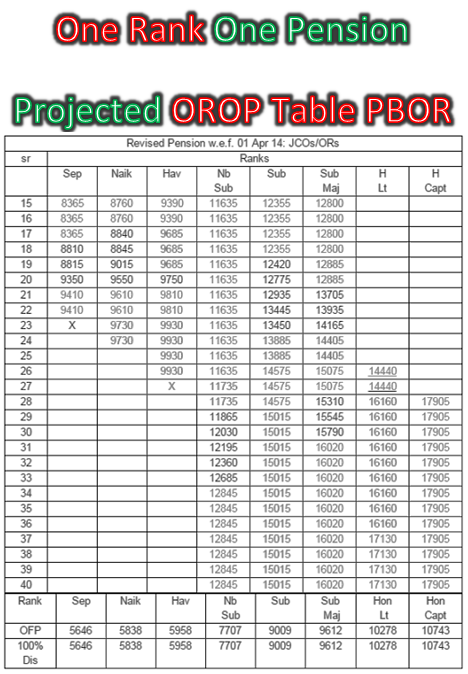The Supreme Court has directed the Centre to implement its
six-year-old verdict to follow the one rank, one pension (OROP)
principle for retired armed forces personnel, reminding the BJP
government that it had promised to do so in the run-up to last year’s
Lok Sabha elections.
A bench of justices TS Thakur and AK Goel warned the government of contempt if it failed to abide by its order within three months.
“We make it clear that no further time will be granted for the purpose of implementation of the judgment,” the bench told additional solicitor general Pinky Anand who assured the bench that modalities would be worked out till then.
“This was part of your manifesto for the Lok Sabha elections. You must keep your word,” justice Thakur reminded Anand while hearing a contempt petition filed by retired Major General SPS Vains who dragged the defence ministry to court demanding the OROP scheme.
Armed forces personnel holding the same rank will get the same pension, regardless of the last drawn pay, years of service and the years served in a particular rank, under the OROP scheme.
Vains’s counsel, senior advocate Nidhesh Gupta, said the government wasn’t doing charity since there was a court order in his clients’ favour. “We have a judgment. It has been six years and we are still waiting,” Gupta told the court.
He later told HT, “Before this judgment came, there was disparity among retired armed forces personnel receiving pensionary benefits that were calculated as per their pay-scale. So a major general, who retired before 1996 when the fifth pay commission was introduced, drew pension lower than not just a similarly ranked officer who retired post-1996 but also a brigadier, colonel and a lieutenant colonel. The 2008 judgment brought everyone at par as the verdict said there should be no classification due to the date of retirement.”
Successive governments in the past have opposed OROP on the grounds that it would not be financially feasible.
However, the Modi government has promised to implement the policy that will benefit around 25 lakh ex-servicemen. OROP for the armed forces is likely to be part of the Union budget and could be implemented soon.
http://www.hindustantimes.com/
A bench of justices TS Thakur and AK Goel warned the government of contempt if it failed to abide by its order within three months.
“We make it clear that no further time will be granted for the purpose of implementation of the judgment,” the bench told additional solicitor general Pinky Anand who assured the bench that modalities would be worked out till then.
“This was part of your manifesto for the Lok Sabha elections. You must keep your word,” justice Thakur reminded Anand while hearing a contempt petition filed by retired Major General SPS Vains who dragged the defence ministry to court demanding the OROP scheme.
Armed forces personnel holding the same rank will get the same pension, regardless of the last drawn pay, years of service and the years served in a particular rank, under the OROP scheme.
Vains’s counsel, senior advocate Nidhesh Gupta, said the government wasn’t doing charity since there was a court order in his clients’ favour. “We have a judgment. It has been six years and we are still waiting,” Gupta told the court.
He later told HT, “Before this judgment came, there was disparity among retired armed forces personnel receiving pensionary benefits that were calculated as per their pay-scale. So a major general, who retired before 1996 when the fifth pay commission was introduced, drew pension lower than not just a similarly ranked officer who retired post-1996 but also a brigadier, colonel and a lieutenant colonel. The 2008 judgment brought everyone at par as the verdict said there should be no classification due to the date of retirement.”
Successive governments in the past have opposed OROP on the grounds that it would not be financially feasible.
However, the Modi government has promised to implement the policy that will benefit around 25 lakh ex-servicemen. OROP for the armed forces is likely to be part of the Union budget and could be implemented soon.
http://www.hindustantimes.com/
